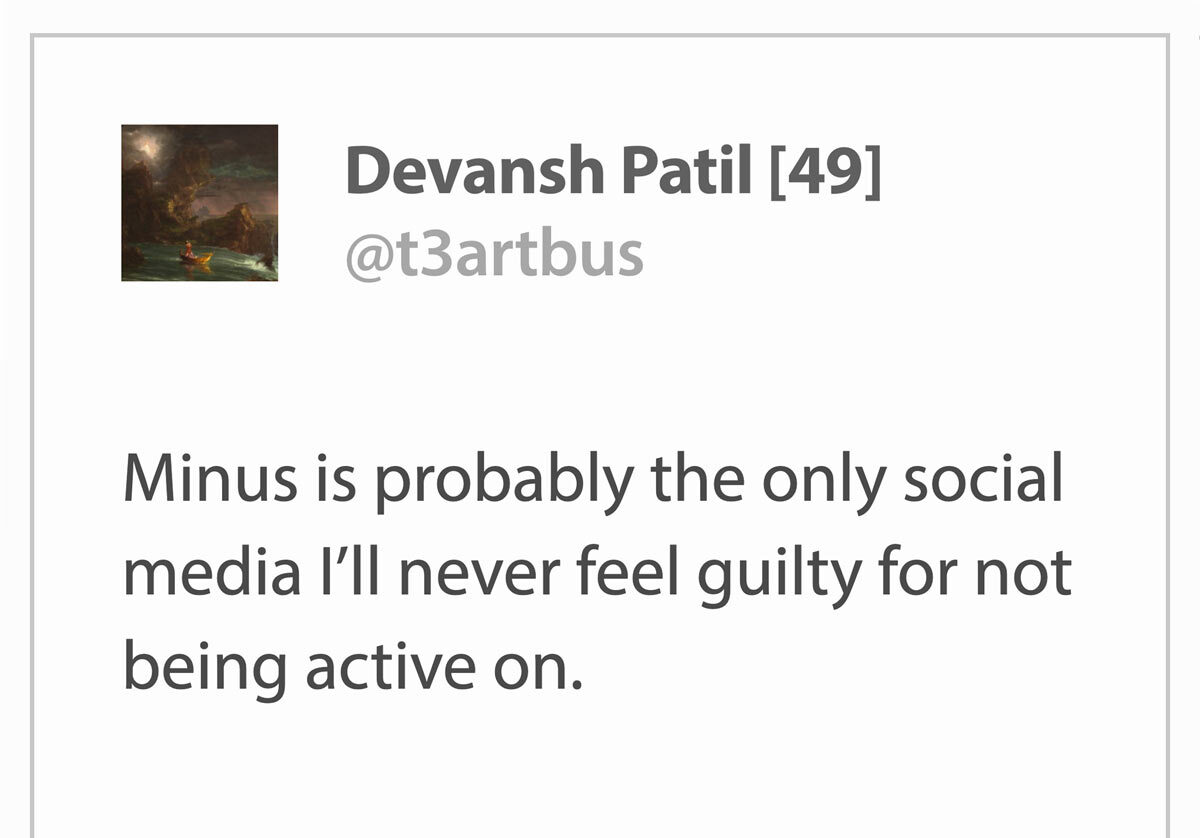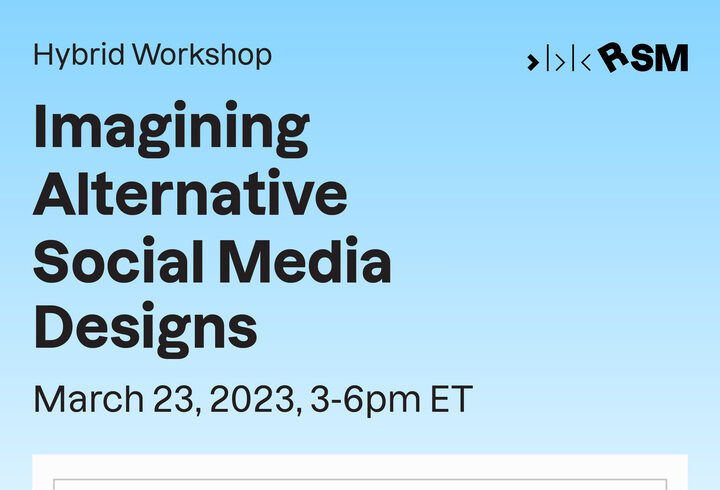August 15, 2023
Minus: Radically Finite Social Media and Alternative Futures
Assembly Fellow Ben Grosser shares insights from his analysis of Minus, a finite social media platform he built to demonstrate a different kind of social media.

Artist Ben Grosser creates interactive experiences, machines, and systems that examine the cultural, social, and political effects of software. Recent exhibition venues include Somerset House in London, Centre Pompidou in Paris, SXSW in Austin, Museum of Modern Art in Moscow, Museu das Comunicaes in Lisbon, Museum Kesselhaus in Berlin, Science Gallery in Dublin, Japan Media Arts Festival in Tokyo, and the Digital Arts Festival in Athens. His works have been featured in The New Yorker, Wired, The Atlantic, The Washington Post, The Los Angeles Times, PBS, Fast Company, BBC, The Telegraph, Le Monde, Corriere della Sera, Der Spiegel, El Pas, and Folha. The Guardian (UK), writing about his recent film ORDER OF MAGNITUDE, said there will be few more telling artworks [from] the first decades of this century a mesmerizing monologue, the story of our times. Speaking about his social media-focused projects, RT (Ireland) described Grosser as an “antipreneur”. Slate referred to his work as creative civil disobedience in the digital age. Grossers artworks are regularly cited in books investigating the cultural effects of technology, including The Age of Surveillance Capitalism, The Metainterface, and Investigative Aesthetics, as well as volumes centered on computational art practices such as Electronic Literature, The New Aesthetic and Art, and Digital Art. Grosser is an associate professor of new media in the School of Art + Design and co-founder of the Critical Technology Studies Lab at the National Center for Supercomputing Applications, both at the University of Illinois at Urbana-Champaign, USA.
Twitter: @bengrosser Github: @bengrosser
Motivated by the insight that social media platforms are designed to keep users on an endless quest for more—more updates, more likes, more content Ben Grossers Minus asks what users would do with less. Minus allotts users just 100 posts for life, aiming to create an online space that mimics the finite time and resources we have in the physical world. Since launching in 2021, Minus has gained thousands of users and hosted tens of thousands of posts and comments. Ben’s time as an RSM Assembly Fellow was devoted to an in-depth analysis of Minus as a platform, which teased out how the affordances of constrained social media platforms encourage different sorts of interactions and conversations among users.

August 15, 2023
Assembly Fellow Ben Grosser shares insights from his analysis of Minus, a finite social media platform he built to demonstrate a different kind of social media.

March 23, 2023
Taking inspiration from art, critical design, and media studies, this interactive workshop, facilitated by RSM Assembly Fellow Ben Grosser, will explore how everything from novel constraints to finite structures can help us break out of the profit-driven engagement-obsessed platform world we currently inhabit. RSVP required.